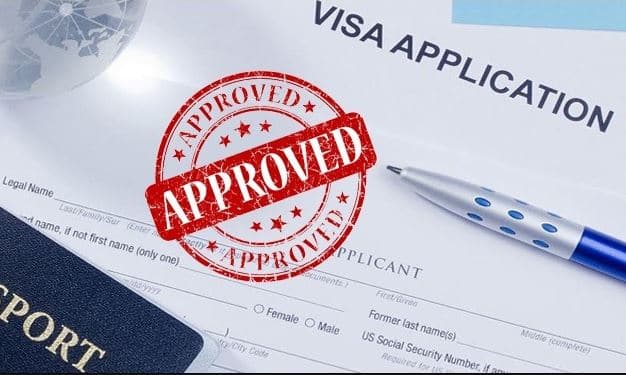If you wish to work in the United States temporarily as a nonimmigrant, you must obtain a visa that is specific to the type of work you will be undertaking. Most temporary worker categories need your potential employer or agent to file a petition with the United States Citizenship and Immigration Services (USCIS) before you may apply for a work visa.
All candidates for H, L, O, P, and Q visas must have a petition accepted by USCIS. The I-129 petition must be accepted before you may apply for a work visa at a US Embassy or Consulate. When your petition is authorised, your employer or agent will get a Notice of Action and Form.During your interview, the consular officer will check your petition’s approval status using the Department of State’s Petition Information Management Service (PIMS).

To verify the approval of your petition, bring your I-129 petition receipt number to your interview at the US Embassy or Consulate. Please keep in mind that approval of a petition does not guarantee the issue of a visa if you are ruled ineligible for one under US immigration rules.
Note for citizens of Saudi Arabia applying for work visas:
If the consular official authorises the granting of an H-1 through H-3, L-1 through L-2, O-1 through O-2, P-1 through P-3, or R-1 visa, Saudi individuals seeking these work visas must pay an additional issuance charge (reciprocity fee) of US$800.00. Dependent spouses and single children (under the age of 21) of H-visa holders (H-4 visa recipients) and L-visa holders (L-2 visa recipients), O-visa holders (O-3 visa recipients), P-visa holders (P-4 visa recipients), and R-visa holders (R-2 visa recipients), pay an additional issuance fee of US$150.00. Following the visa interview, the applicant will pay the cost at the consular section’s cashier window.
Principal applicants for an L-1 visa issued pursuant to a blanket petition by the United States Citizenship and Immigration Service (USCIS) must also pay a non-refundable blanket fraud prevention and detection fee of US$ 500.00 in cash in US$ or local currency at the time of application.
Visa Descriptions and Qualifications
H-1B (Speciality profession)
If you are coming to the United States to work in a pre-arranged professional employment, you must obtain an H-1B visa first. To be eligible, you must have a bachelor’s or higher degree (or an equivalent degree) in the speciality for which you seek employment. USCIS will examine whether your job is a speciality occupation and if you are qualified to perform the services. Your employer is required to file a labour condition application with the Department of Labour detailing the terms and conditions of its employment contract with you.
H-1B1 (Treaty-Based Temporary Work Visa):
Free trade agreements struck between Chile and Singapore allow eligible Chilean and Singaporean residents to work temporarily in the United States under certain conditions. Only Chilean and Singaporean citizens are eligible as major applicants, although their spouses and children may be citizens of other nations.
Applicants for H-1B1 visas must already have a job offer from an employer in their desired work area in the United States, but the employer is not required to file Form I-129, Petition for Nonimmigrant Worker, and the applicant is not required to obtain a Notice of Approval, Form I-797, prior to submitting the visa application. However, the petitioner must file an Application for Foreign Labour Certification with the Department of Labour before applying for the visa. For additional information about the H-1B1 visa,
H-2A (seasonal agricultural workers).
Employers in the United States can use an H-2A visa to bring foreign nationals to the country to fill temporary agricultural employment where American workers are unavailable. If you intend to do temporary or seasonal agricultural labour or services in the United States, you will be classified as an H-2A nonimmigrant. A US employer (or an association of US agricultural producers recognised as a joint employer) must file Form I-129, Petition for Nonimmigrant Worker, on your behalf.
H-3 (Trainee)
An H-3 visa is necessary if you are travelling to the United States for up to two years of employer-provided training in any field other than graduate education or training. You can get compensated for your training, and “hands-on” labour is acceptable. Training cannot lead to productive employment and is not offered in your own country.
H-4 (dependents).
If you are the primary bearer of a valid H visa, your spouse or unmarried children (under age 21) may be granted an H-4 visa to accompany you to the United States. However, your spouse and children are not permitted to work while in the United States.
L-1 (intra-company transferees).
An L-1 visa is necessary if you work for an international company and are temporarily transferred to a parent branch, affiliate, or subsidiary of the same company in the United States. The worldwide firm could be either a US or a foreign organisation. To be eligible for an L-1 visa, you must be at the managerial or executive level, or have specialised expertise, and be assigned to a position within a US corporation at either of these levels, though not necessarily in the same role as previously held. Furthermore, you must have worked for the foreign company outside of the United States for at least one year in the three years preceding your application for admission to the United States.